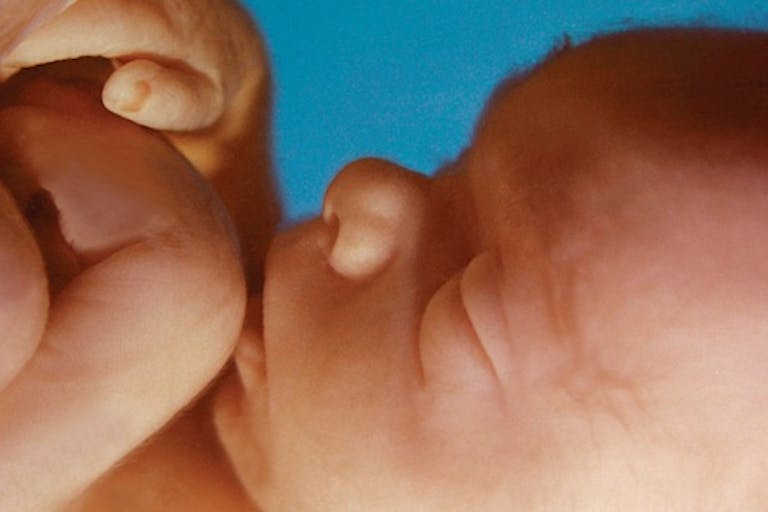
Details shrouded in secrecy as third woman in a month is injured at Rhode Island Planned Parenthood
Bridget Sielicki
·
Human Interest·By Nancy Flanders
Eat your veggies: Preborn children’s food preferences form in the womb
Researchers continue to discover amazing facts about life inside the womb. For instance, did you know that what your mother ate during pregnancy shaped your food preference both as a child and throughout your life? Studies show that amniotic fluid takes on the scent and flavor of the foods that pregnant women eat. Their preborn babies then taste those flavors when they swallow amniotic fluid in the womb.
By 21 weeks gestation, a preborn child is swallowing several ounces of amniotic fluid each day. That fluid, altered by a mother’s diet, contains vitamins, minerals, fats and proteins that the child needs to grow. It also contains tiny molecules which give foods their flavors. Those molecules glide across a preborn baby’s taste buds and as the amount of fluid she swallows increases, so does her exposure to the variety of foods her mother is eating.
READ: Studies show preborn children can form memories in the womb
In one study, three groups of women were given either carrot juice or water to drink both during pregnancy and while breastfeeding. One group drank carrot juice during pregnancy and water while breastfeeding. A second group drank water during pregnancy and carrot juice while breastfeeding. The control group only drank water during both pregnancy and breastfeeding. The infants who had tasted carrots through amniotic fluid or breastmilk had fewer negative facial expressions when fed carrot-flavored baby cereal compared to plain cereal. They also ate more of the carrot-flavored cereal. The control infants did not show any difference in facial expressions between the carrot-flavored or plain cereals. Researchers concluded that exposure to flavor during pregnancy and breastfeeding helped the children better enjoy the same flavor when fed it in solid foods.
Another study found that prenatal exposure to junk food leads to an increased desire for unhealthy foods after birth. Pregnant rats used in the study who ate foods high in fat, salt and sugar had babies who preferred these foods and disliked healthy foods. Scientists involved in the study concluded that the foods a woman eats during pregnancy can determine her baby’s eating habits as well as the baby’s odds of obesity and diabetes throughout his lifetime.

“Things like vanilla, carrot, garlic, anise, mint — these are some of the flavors that have been shown to be transmitted to amniotic fluid or mother’s milk,” said Julie Mennella, a researcher who studies taste in infants at the Monell Chemical Senses Center. She said they have yet to find a single flavor that doesn’t appear in amniotic fluid.
Article continues below
Dear Reader,
In 2026, Live Action is heading straight where the battle is fiercest: college campuses.
We have a bold initiative to establish 100 Live Action campus chapters within the next year, and your partnership will make it a success!
Your support today will help train and equip young leaders, bring Live Action’s educational content into academic environments, host on-campus events and debates, and empower students to challenge the pro-abortion status quo with truth and compassion.
Invest in pro-life grassroots outreach and cultural formation with your DOUBLED year-end gift!
Mennella’s research includes a study in which pregnant women were given garlic capsules or sugar capsules to consume. After samples of their amniotic fluid were taken, a panel of people smelled the samples. Researchers found that they were able to easily pick out the samples of the women who ate the garlic capsules.
Mennella also learned that the memories of these flavors are formed in utero, resulting in preferences for certain foods and smells after birth and throughout life. So if you want your baby to like vegetables, eat vegetables during pregnancy.
READ: Preborn babies sense not just pain, but light and temperature
These findings can allow us to raise future generations to be healthier individuals, not only because what the mother eats helps determine what the baby will eat, but during the study using rats, it was found that what the mother ate affected her grandchildren as well.
Preborn babies are human beings who can acquire a taste for things – including food and music – just like those of us who are born do. Their location does not determine their humanity, and the more we learn about life inside the womb, the more science keeps proving that life begins at conception. And every human life is deserving of equal rights.
Live Action News is pro-life news and commentary from a pro-life perspective.
Contact editor@liveaction.org for questions, corrections, or if you are seeking permission to reprint any Live Action News content.
Guest Articles: To submit a guest article to Live Action News, email editor@liveaction.org with an attached Word document of 800-1000 words. Please also attach any photos relevant to your submission if applicable. If your submission is accepted for publication, you will be notified within three weeks. Guest articles are not compensated (see our Open License Agreement). Thank you for your interest in Live Action News!

Bridget Sielicki
·
Human Interest
Nancy Flanders
·
Human Interest
Bridget Sielicki
·
Human Interest
Sheena Rodriguez
·
Human Interest
Angeline Tan
·
Human Interest
Andrea Trudden
·
Politics
Nancy Flanders
·
Human Interest
Nancy Flanders
·
Issues
Nancy Flanders
·
Human Interest
Nancy Flanders
·
Politics
Nancy Flanders
·